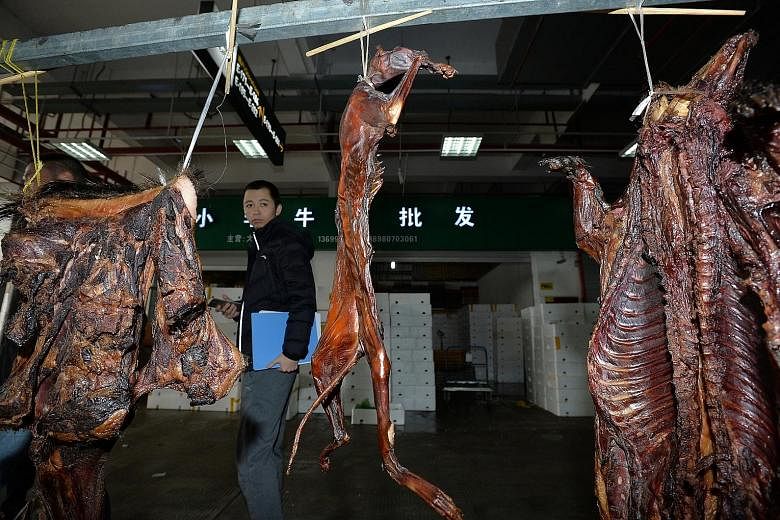BEIJING • China is investigating some 50 factories for allegedly manufacturing fake versions of widely used food seasoning and sauces, the BBC reported yesterday.
The factories near the city of Tianjin were using unapproved ingredients unfit for human consumption like industrial salt in seasoning including soya sauce and vinegar, it said, quoting the Beijing News.
The products were then labelled as famous brands, including Maggi, Knorr and Nestle.
The elaborate schemes uncovered once again showed up the tough job of trying to control China's sprawling food-supply chain.
Government regulators and state-owned agriculture firms have tried to tackle the problem - increasing factory inspections, conducting mass laboratory tests and enhancing enforcement procedures, even with prosecutions and executions, The New York Times reported last year.
In one of China's biggest food scares, dairy producers in 2008 sold milk formula laced with melamine, which put 300,000 babies in hospital and killed six.
In 2014, a supplier to McDonald's and KFC was caught putting rotten and expired meat into products.
Penny-pinching chefs cook with waste oil from fryers and sewers, a toxic ingredient known as gutter oil that generally goes unnoticed until diners get sick.
In the current case, the seasonings, which include spices and chicken stock, are commonly used in Chinese cooking and can be widely found across Asia, BBC said.
The China Food and Drug Administration said in a statement on Monday that it had dispatched officers to Tianjin to investigate the claims.
The Beijing News report said a "fake food seasoning manufacturing hub" had grown unchecked for more than 10 years in the town of Duliu near Tianjin.
The nearly 50 small factories, operating in a residential area, had been churning out fake seasoning estimated to be worth up to a 100 million yuan (S$20.6 million) a year, the BBC reported.
The factories were uncovered following a tip-off.

